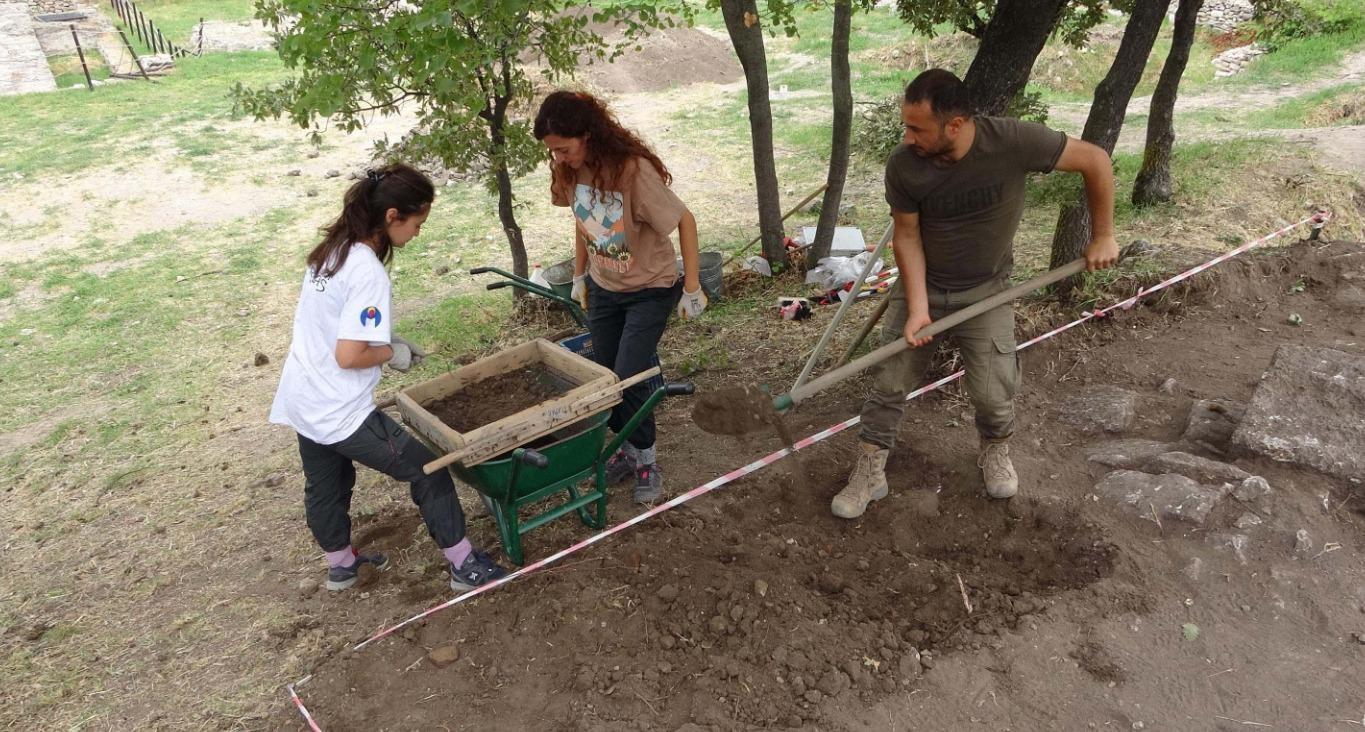
Researchers have found 2,000-year-old bronze coins during excavations in the ancient city of Alexandria Troas, a 2,400-year-old port city in the northwestern province of Çanakkale.
"These coins date back to the end of the 1st century B.C. and the first quarter of the 1st century A.D., making them around 2,000 years old. This indicates that they are related to the period when the city was transformed into a Roman colony," excavation head Erhan Öztepe said.
"It's not just coins. We have also discovered a wealth of ceramic artifacts. We are systematically excavating the layers of soil. As we sift through the excavated soil, everything that comes out is first collected in the field, then washed and sorted. Ceramics and metal finds are separated. If there are any items requiring cleaning, our restoration experts conduct the necessary scientific analysis. After that, we move on to the evaluation stage," Öztepe explained.
Stating that the ceramics found during this year's excavation work encompassed various periods ranging from 1,700 to 2,000 years ago, he stressed the discovery of significant human and animal bones as well.
"We need to categorize the bone findings into two groups: Human-made bone artifacts and bone remains from humans or animals. Our anthropologist colleagues worked specifically on the bone remains of humans and animals. As a result of this study, we confirmed the types of animals we had previously identified in the bones found within the Hellenistic Stoa structure of the marketplace," Öztepe said.
"These include domesticated animals such as sheep, goats and cattle, as well as wild animals ranging from deer to the bones of a rooster species, which is consumed for the first time. This is significant for us. Inside the marketplace structure, we might also discover clues related to eating and drinking activities.”